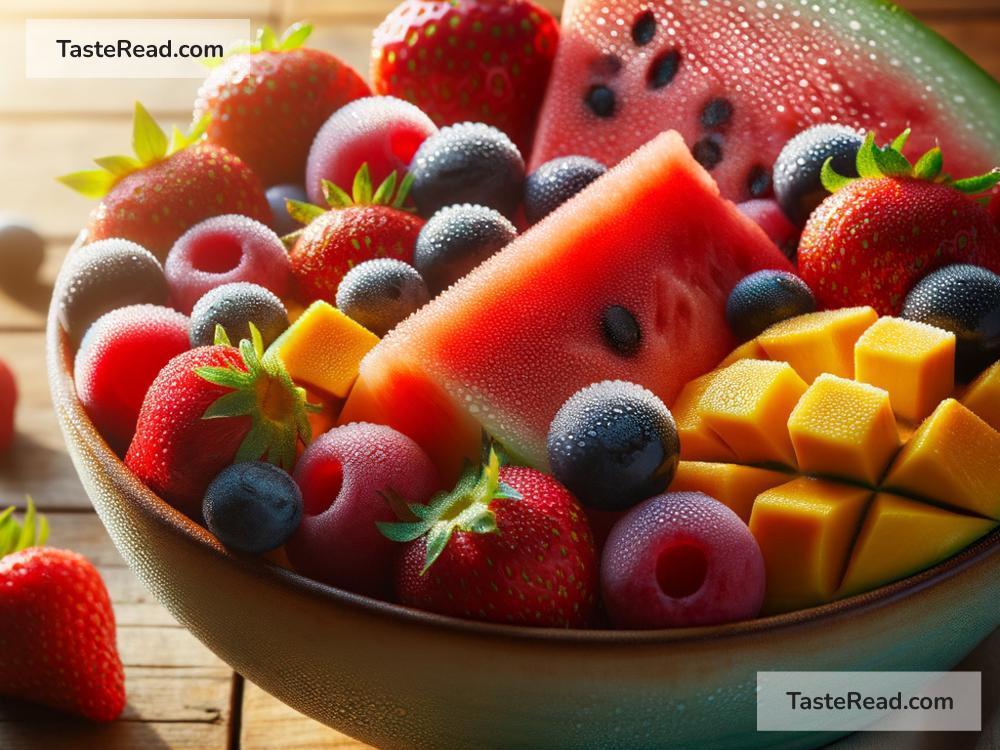Why Some Fruits Taste Sweeter After Being Chilled
Have you ever grabbed a chilled apple or a cold slice of watermelon from the fridge, only to notice it tastes sweeter than when you eat it at room temperature? If so, you’re not alone. Many people have experienced this phenomenon and wondered why fruits seem different when they’ve been cooled. The answer lies in a mix of science, human perception, and how fruits react to temperature. Let’s dive into the fascinating reasons why some fruits taste sweeter after being chilled, explained in simple terms.
Understanding Fruit Sweetness
To begin with, let’s understand what makes a fruit “sweet.” Fruits contain natural sugars like fructose, glucose, and sucrose. These sugars are responsible for giving fruits their sweet flavor. But sweetness isn’t just about the sugar itself—it’s also about how your taste buds and brain perceive it. Other factors, like temperature, acidity, and aroma, can influence this perception, affecting how sweet a fruit seems.
How Chilling Changes Sweetness Perception
One main reason fruits taste sweeter after being chilled is because cold temperatures change the way your taste buds work. Here’s a step-by-step explanation:
-
Temperature Affects Taste Bud Sensitivity
Your taste buds are tiny sensory receptors on your tongue that detect different flavors, like sweet, sour, salty, and bitter. When you eat something cold, like chilled fruit, certain receptors that detect sweetness might become less sensitive to sour or bitter tastes. Since less bitterness is noticed, the sweetness “shines through” more clearly, making the fruit seem sweeter than it actually is. -
Sourness and Acidity Are Reduced
Fruits like oranges, pineapples, and berries contain a mix of sugars and acids. At room temperature, the acidity in these fruits might stand out more, making them taste less sweet. But when the fruit is chilled, the acidity becomes less pronounced—it doesn’t hit your taste buds as hard. This subtle change allows the sweet flavors to dominate, making the whole fruit taste sweeter. -
Aroma Plays a Role
Did you know that your nose helps you taste food? The aroma of fruit is an important part of flavor perception. At room temperature, the natural smells of fruit are more active and might highlight the fruit’s sour or tangy flavors. However, when chilled, the colder temperature can suppress some of the strong aromas that emphasize sourness, leaving your brain to focus more on the sweetness.
What Happens Inside the Fruit?
Beyond your taste buds, chilling fruit can also affect what’s happening inside the fruit itself. Here are a few changes that occur:
-
Moisture Redistribution
Chilling fruit can sometimes cause subtle changes in the moisture levels inside. For example, when fruit sits at cold temperatures, water can settle in areas where sugars are more concentrated, amplifying sweetness in certain bites. This is why some fruits, like watermelon or grapes, feel juicier and taste sweeter when cold. -
Slowing Down Spoilage
At cooler temperatures, the breakdown of sugars and acids in the fruit slows down. This means the natural balance of sweetness and acidity is maintained for a longer time while the fruit is in the fridge, helping it taste fresh and sweet.
Do All Fruits Taste Sweeter When Chilled?
Not all fruits benefit from chilling. Some fruits, like bananas, can actually taste worse after being refrigerated. Bananas are sensitive to cold temperatures and can lose their flavor or develop an unpleasant texture. Similarly, chilling tropical fruits like mangoes, papayas, and pineapples for too long can disrupt their ripening process, making them less flavorful.
On the other hand, fruits with higher water content, such as apples, strawberries, grapes, and melons, tend to taste better when chilled. These fruits thrive in cold conditions and maintain their crispness, juiciness, and sweet flavor. So if you’re looking for a refreshing treat, try chilling these types of fruits.
Tips for Chilling Fruits the Right Way
To enjoy the maximum sweetness and freshness of chilled fruits, it’s important to store them properly. Here are some quick tips:
-
Choose the Right Fruits to Chill
Fruit like apples, watermelon, grapes, and berries often taste sweeter when chilled. Avoid refrigerating bananas or tropical fruits unless they’re fully ripe and being stored for preservation. -
Don’t Overchill
While cold temperatures can enhance sweetness, freezing fruit can completely change its flavor and texture. If the fruit is too cold, its juice may taste watered down instead of sweet. -
Bring It to the Right Temperature Before Eating
Fruits taste best when they’re chilled but not icy-cold. If your fruit has been sitting in the fridge for a long time, consider letting it sit at room temperature for 5–10 minutes before eating.
In Summary
The sweetness of chilled fruit is influenced by science and perception. Chilling reduces sourness and acidity, changes how your taste buds respond to sweetness, and can subtly alter the fruit’s texture and aroma. While not all fruits benefit from refrigeration, many fruits with higher water content taste more refreshing and sweeter when cool. So the next time you’re craving a sweet and healthy snack, try grabbing a chilled piece of fruit—it’s like nature’s candy, perfectly cooled for your enjoyment.
Now you know why chilled fruit feels extra sweet and satisfying! Enjoy your next cold apple or juicy watermelon slice with a bit of science behind the magic.


